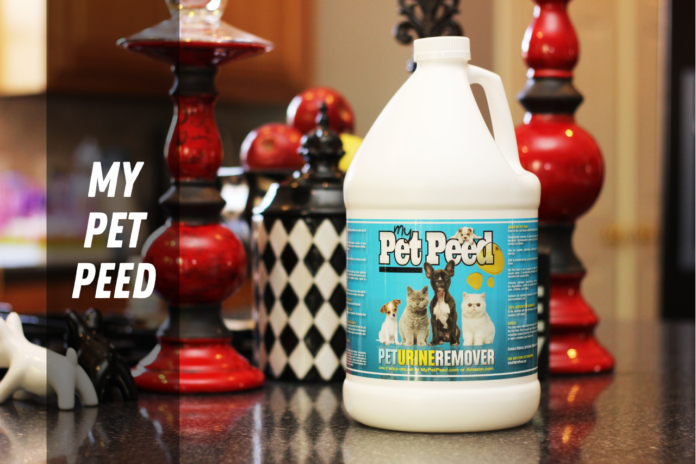As pet owners, we cherish our furry companions for their unconditional love and companionship. However, dealing with indoor peeing incidents can be frustrating and challenging. It’s essential to understand the underlying reasons behind this behavior and take proactive steps to address it effectively.
My pet peed
Dealing with a pet that frequently urinates indoors can be frustrating and challenging. Whether it’s a young puppy undergoing house training or an older pet with health issues, accidents can happen. It’s essential to address the underlying cause of the behavior, whether it’s a medical issue, anxiety, or simply incomplete training. Consistent positive reinforcement, regular bathroom breaks, and proper cleaning of soiled areas are key strategies for managing and preventing indoor accidents.
Seeking guidance from a veterinarian or animal behaviorist can also provide valuable insights and assistance in resolving the issue. With patience, understanding, and proactive measures, it’s possible to overcome the challenges of a pet that frequently urinates indoors and create a cleaner, happier living environment for both pet and owner.
Reasons Why Pets Pee Indoors
Medical Issues
One of the primary reasons for indoor peeing in pets is underlying medical issues. Conditions such as urinary tract infections, bladder stones, diabetes, and kidney disease can cause pets to urinate indoors due to discomfort or inability to control their bladder.
Behavioral Problems
Behavioral issues such as territorial marking, anxiety, fear, or lack of proper potty training can also contribute to indoor peeing. Pets may urinate indoors as a form of communication or to establish their territory, especially in multi-pet households.
Stress or Anxiety
Changes in the environment, such as moving to a new home, the introduction of a new pet or family member, or loud noises, can trigger stress and anxiety in my pet peed, leading to inappropriate urination.
Steps to Address Indoor Peeing
Consult a Veterinarian
If your pet is experiencing frequent indoor peeing episodes, it’s crucial to consult a veterinarian to rule out any underlying medical issues. A thorough physical examination and diagnostic tests may be necessary to identify and treat any health problems.
Clean and Neutralize Odors
Proper cleaning and odor neutralization are essential to discourage repeat incidents. Use pet-safe cleaning products to thoroughly clean affected areas and eliminate lingering odors that may attract my pet peed to urinate in the same spot again.
Provide Adequate Bathroom Opportunities
Ensure that your pet has access to regular bathroom breaks throughout the day, especially after meals and before bedtime. Establishing a consistent potty routine helps minimize indoor accidents and reinforces proper bathroom habits.
Preventive Measures to Avoid Future Incidents
Consistent Potty Training
Consistency is key about potty preparation. Use positive reinforcement techniques such as praise, treats, and rewards to encourage your pet to eliminate outdoors. Supervise my pet peed closely during potty breaks and redirect them to the designated bathroom area as needed.
Environmental Enrichment
Provide your pet with plenty of mental and physical stimulation to prevent boredom and anxiety, which can contribute to indoor peeing. Interactive toys, puzzle feeders, and regular exercise help keep your pet engaged and content.
Stress Reduction Techniques
Identify and address any sources of stress or anxiety in your pet’s environment. Create a safe and secure space for your my pet peedto retreat to when feeling overwhelmed, and consider using calming aids such as pheromone diffusers or supplements to promote relaxation.
Conclusion
In conclusion, dealing with indoor peeing incidents can be challenging, but with patience, understanding, and proactive measures, it’s possible to address and overcome this behavior. By addressing any underlying medical issues, implementing proper cleaning and training techniques, and creating a supportive environment for your my pet peed, you can help them develop healthy bathroom habits and partake in an amicable relationship with your fuzzy companion.
FAQs
- My pet has never had indoor accidents before. Why is this behavior suddenly occurring?
- Sudden changes in behavior, such as indoor peeing, may indicate underlying medical issues, stress, or environmental changes. Counsel a veterinarian to preclude any medical issues and address any possible triggers.
- How can I prevent my pet peed from urinating indoors when I’m not home?
- Consider crate training or confining your pet to a designated area with access to a potty pad or litter box while you’re away. Gradually increase the time your pet spends alone to reinforce proper bathroom habits.
- Are there any natural remedies or supplements that can help reduce my pet’s stress and anxiety?
- Certain herbal supplements, such as chamomile or valerian root, may help promote relaxation in my pet peed. However, it’s essential to consult with a veterinarian before introducing any new supplements to your pet’s routine.
- What should I do if my pet peed continues to urinate indoors despite training and preventive measures?
- If indoor peeing persists despite your efforts, consult a certified animal behaviorist for additional guidance and support. They can assess your my pet peed behavior and provide tailored strategies to address the issue effectively.
- Can indoor peeing be a sign of a more serious underlying health problem?
- Yes, frequent indoor urination can sometimes indicate underlying medical conditions such as urinary tract infections, bladder stones, or diabetes. Counseling a veterinarian for legitimate conclusion and treatment is fundamental.
Also Read: cheap hotels near me pet friendly

